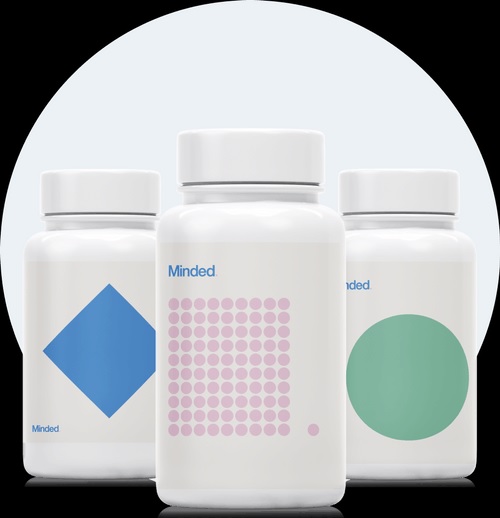 Teladoc closed 2021 on Tuesday with record revenue of $2,032.7 billion, 86% over 2020. Visits were up 38% to 15.4 million with 53.4 million paid members. Q4 revenue was $554.2 million, 45% over Q4 2020, all of which exceeded investors’ expectations. Despite moving to a positive cash flow of $194 million, Teladoc is still not profitable, with full-year losses of almost $429 million and net loss per share of $2.73, somewhat lower than 2020.
Teladoc closed 2021 on Tuesday with record revenue of $2,032.7 billion, 86% over 2020. Visits were up 38% to 15.4 million with 53.4 million paid members. Q4 revenue was $554.2 million, 45% over Q4 2020, all of which exceeded investors’ expectations. Despite moving to a positive cash flow of $194 million, Teladoc is still not profitable, with full-year losses of almost $429 million and net loss per share of $2.73, somewhat lower than 2020.
The outlook for 2022 is less certain. For the full year, they anticipate a nice rise in revenues to $2.55 to $2.65 billion but a net loss of $1.40-1.60 per share, a little more than half 2021. Paid membership they project will grow to 54 to 56 million. The stock did take a bit of a bath due to market uncertainty with Ukraine-Russia and also a lowered forecast for first quarter. Teladoc earnings release, Healthcare Dive
 DOJ has till Sunday 27 February to sue to stop the UnitedHealth acquisition of Change Healthcare. The acquirer and acquiree popped their 10-day notice on 17 February through their 8-K filing with the SEC. They had previously agreed to hold their closing until after 22 February. So if the DOJ is going to block the deal, as has been reported [TTA 17 Feb], they have from today to Sunday to do it–and courts aren’t open Saturday and Sunday. Healthcare Dive, Becker’s Health IT
DOJ has till Sunday 27 February to sue to stop the UnitedHealth acquisition of Change Healthcare. The acquirer and acquiree popped their 10-day notice on 17 February through their 8-K filing with the SEC. They had previously agreed to hold their closing until after 22 February. So if the DOJ is going to block the deal, as has been reported [TTA 17 Feb], they have from today to Sunday to do it–and courts aren’t open Saturday and Sunday. Healthcare Dive, Becker’s Health IT
Cerner’s 2021 swan song kind of… honked. Their net loss for the year was $8.8 million in 2021, compared with a net income of $76.9 million in 2020. Total net earnings topped $555 million in net earnings in 2021, down 29% from $780.1 million in 2020. Cerner release, Becker’s. Meanwhile, Oracle’s acquisition high hurdles continue [TTA 11 Feb] with the Feds, passing the first mark of the Hart-Scott-Rodino Act waiting period as of 11.59pm on 22 February. Still to go is the SEC review of Oracle’s tender offer for Cerner shares. Becker’s Health IT
compared with a net income of $76.9 million in 2020. Total net earnings topped $555 million in net earnings in 2021, down 29% from $780.1 million in 2020. Cerner release, Becker’s. Meanwhile, Oracle’s acquisition high hurdles continue [TTA 11 Feb] with the Feds, passing the first mark of the Hart-Scott-Rodino Act waiting period as of 11.59pm on 22 February. Still to go is the SEC review of Oracle’s tender offer for Cerner shares. Becker’s Health IT
 Humana joins Centene in insurers forced to change by activist shareholders. Starboard Value, a hedge fund, reached an agreement with Humana that Humana would add two independent board directors backed by Starboard. The first will be named on 21 April with the second to follow. They replace incumbents who will not stand for re-election. Starboard owns 1 million Humana or 0.79% of shares, but is well known for wielding them effectively to leverage change when the business hits a pothole–Humana’s $14 million Q4 loss and Medicare Advantage losses to both traditional rivals and insurtechs.
Humana joins Centene in insurers forced to change by activist shareholders. Starboard Value, a hedge fund, reached an agreement with Humana that Humana would add two independent board directors backed by Starboard. The first will be named on 21 April with the second to follow. They replace incumbents who will not stand for re-election. Starboard owns 1 million Humana or 0.79% of shares, but is well known for wielding them effectively to leverage change when the business hits a pothole–Humana’s $14 million Q4 loss and Medicare Advantage losses to both traditional rivals and insurtechs.
Humana is standing by its 2022 projection of 11-15% growth but slowing performance in large areas such as Medicare Advantage. The company has stated that they will funnel funds back into Medicare Advantage through its “value creation plan”, which sounds very much like Centene’s “value creation office”. You’d think they’d come up with cleverer names and less anodyne ‘strategies’ for extracting savings from these lemons wherever possible, including selling off assets and “optimizing its workforce”. Reuters, Healthcare Dive
And quick takes from the US, UK, and India…
WellSky is acquiring TapCloud for an undisclosed amount. WellSky is a data analytics and care coordination automation company in the acute care and home care markets, with TapCloud a patient-facing engagement and communication platform. Release
Another data analytics company, Health Catalyst, is bolstering capabilities with its agreement to buy KPI Ninja, a provider of interoperability solutions and population health analytics. Purchase price and management transitions undisclosed, though from the release it appears that all KPI Ninjas will be onboarded.
 Minded, a NYC-based mental health med management company, scored $25 million in seed funding from Streamlined Ventures, Link Ventures, The Tiger Fund, Unicorn Ventures, and private individuals. They provide direct-to-patient behavioral health medications through virtual evaluations with treatment plans without in-person visits, which are still unusual in psychiatry. At the present time, it is available only in New York, New Jersey, Pennsylvania, Florida, Texas, Illinois, and California.
Minded, a NYC-based mental health med management company, scored $25 million in seed funding from Streamlined Ventures, Link Ventures, The Tiger Fund, Unicorn Ventures, and private individuals. They provide direct-to-patient behavioral health medications through virtual evaluations with treatment plans without in-person visits, which are still unusual in psychiatry. At the present time, it is available only in New York, New Jersey, Pennsylvania, Florida, Texas, Illinois, and California.
The founders are an interesting mix: David Ronick, who previously co-founded fintech unicorn Stash, Gaspard de Dreuzy, the co-founder of telehealth company Pager, and Dr. Chris Dennis, a multi-state licensed psychiatrist. Their rationale for founding the company does resonate with this Editor, whose brother is a board-certified MD psychiatrist, and who knows well 1) the challenges of remote therapy and 2) the scarcity of psychiatrists in most of the US beyond urban and academic areas. Release, TechCrunch, Mobihealthnews
In the UK, London-based Automata, which automates lab technology to shorten turnaround time and scale up lab capacity, along with deploying automation with contract research organizations, research labs, and blue-chip healthcare institutions, announced a $50 million (£36.8M) Series B raise. The round was led by Octopus Ventures with participation from returning investors Hummingbird, Latitude Ventures, ABB Technology Ventures, Isomer Capital as well as strategic investors including In-Q-Tel. Mobihealthnews
From Bangalore, India, virtual health company MediBuddy $125 million Series C funding was led by Quadria Capital and Lightrock India, bringing their total funding to over $191.1 million, a hallmark of a largely bootstrapped company. MediBuddy uses a smartphone app for 24/7 real-time video doctor consults and at-home lab testing covering the family and in more than eight languages, important in India which has hundreds of languages and local dialects. Great smiles on the founders too! Mobihealthnews









Most Recent Comments